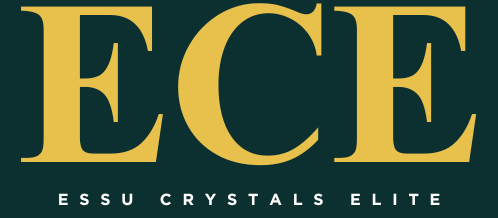
ESSU CRYSTALS ELITE (ECE)
Governing Framework
PREAMBLE
This document establishes the operational framework for ESSU Crystals Elite (ECE), a business-focused alumni network of Emmanuel Secondary School Ugbokolo, Class of 2015. The framework is designed to be flexible, transparent, and self-governing while maintaining accountability and effectiveness.
1. MEMBERSHIP
1.1 Eligibility
- Must be a graduate of ESSU, Class of 2015
- Must be an active participant in the main ESSUOBA group
- Must demonstrate value-adding capabilities (skills, connections, resources)
1.2 Admission Process
- Nomination by existing member
- Review by founding members
- Unanimous approval required from founding members
- Formal acceptance of governing framework
1.3 Member Expectations
- Regular financial contributions as agreed by the group
- Active participation in meetings and discussions
- Contribution of business ideas, opportunities, or expertise
- Maintenance of confidentiality regarding group investments
- Upholding of the group’s reputation and values
1.4 Meeting Attendance & Penalties
- Weekly meeting requirement (minimum one meeting per week)
- Missing one meeting = Yellow Card warning + Fine (amount to be determined)
- Three Yellow Cards in one month = Red Card
- Red Card consequences include potential expulsion
- Note: If expelled, the platform is not liable to return initial investment as it would be considered nullified and no group member is individually responsible for invested funds
1.5 Membership Review
- Monthly review of participation and Yellow/Red Card status
- Quarterly comprehensive review of all member contributions
- Members failing to meet expectations receive formal notice
- Continued non-compliance may result in removal
2. GOVERNANCE STRUCTURE
2.1 Founding Members
- Five founding members serve as custodians of the group
- No hierarchical executive positions
- Founding members facilitate rather than dictate
- Rotation of facilitation responsibilities quarterly
2.2 Decision Making
- Democratic process for all major decisions
- 70% approval required for financial commitments
- 80% approval required for membership changes
- 90% approval required for changes to this framework
- Voting conducted via designated platform with transparency
2.3 Meeting Structure
- Weekly general meetings (virtual)
- Quarterly strategic reviews (in-person when possible)
- Emergency meetings called with 24-hour notice
- Meeting facilitation rotates among members
- Attendance tracking and penalty enforcement by rotating monitor
2.4 Information Access
- All members have equal access to group information
- Financial data, meeting minutes, and project updates accessible to all
- Dedicated platforms for information sharing and storage
3. FINANCIAL FRAMEWORK
3.1 Financial Accounts
- Cryptocurrency wallet (public address for verification)
- Investment platform account (PiggyVest or equivalent)
- Traditional bank account (Kuda, OPay or equivalent)
- All accounts in the name of ECE with designated signatories
3.2 Financial Contributions
- Monthly fixed contribution (amount determined annually)
- Optional additional investment in specific projects
- Contribution deadlines strictly enforced
- Grace period of 5 days with notice
- Fines from Yellow Cards added to contingency reserve
3.3 Fund Management
- Three designated signatories required for withdrawals
- Signatories rotate annually among qualifying members
- Real-time financial tracking accessible to all members
- Quarterly financial reports and reviews
3.4 Fund Allocation
- 70% for investments and business ventures
- 15% for operational expenses and platform costs
- 10% for contingency reserve
- 5% for administrative needs
3.5 Returns Distribution
- 60% reinvested in first two years
- 30% distributed to members proportional to contribution
- 10% added to contingency reserve
- Distribution proportions reviewed annually
3.6 Investment Forfeiture
- Members expelled from the group forfeit their initial investment
- Forfeited funds become part of the group’s general investment pool
- No individual member bears responsibility for forfeited investments
- This policy is explicitly acknowledged during member onboarding
4. PROJECT MANAGEMENT
4.1 Project Proposal
- Any member may propose a business project
- Standard proposal template must be used
- Clear objectives, budget, timeline, and expected returns required
- Risk assessment and mitigation plan included
4.2 Project Selection
- Open discussion period for all proposals
- Democratic voting on project prioritization
- Funding allocation based on available resources
- Multiple concurrent projects permitted if resources allow
4.3 Project Implementation
- Project handler assigned (typically the proposer)
- Clear milestones and reporting schedule established
- Regular updates to general membership
- Transparent tracking via project management platform
4.4 Project Evaluation
- Mid-point review for all projects
- Final performance assessment
- Documentation of lessons learned
- Recognition for successful project handlers
5. NETWORKING FRAMEWORK
5.1 Internal Networking
- Skills and expertise database maintained
- Business interest matching system
- Regular knowledge-sharing sessions
- Mentorship arrangements between members
5.2 External Networking
- Coordinated approach to external business relationships
- Referral system with clear attribution
- Commission structure for business introductions
- Joint representation at business events when beneficial
5.3 Business Collaboration
- Framework for inter-member business dealings
- Preferential rates for services between members
- Conflict of interest disclosure requirements
- Formal documentation of all business arrangements
6. CONFLICT RESOLUTION
6.1 Dispute Process
- Direct communication attempted first
- Mediation by uninvolved members if direct approach fails
- Documented resolution process
- Time-bound resolution framework
6.2 Business Disagreements
- Fact-based assessment approach
- External expert consultation when needed
- Binding resolution through member vote if necessary
- Focus on group benefit over individual preference
6.3 Ethical Concerns
- Confidential reporting mechanism
- Investigation by rotating ethics panel
- Protection for good-faith reporting
- Commitment to integrity in all dealings
7. CONSEQUENCES FRAMEWORK
7.1 Card System
- Yellow Card: Warning with financial penalty
- Red Card: Severe penalty including potential expulsion
- Yellow to Red progression: Three Yellow Cards = One Red Card
- Card record reset quarterly unless Red Card issued
7.2 Financial Non-Compliance
- First instance: Yellow Card + standard fine
- Second instance: Yellow Card + double fine
- Third instance: Red Card + membership review
- Consistent pattern: Expulsion with investment forfeiture
7.3 Participation Deficiency
- Meeting absence: Yellow Card + fine per instance
- Three absences in one month: Red Card
- Project commitment failure: Yellow Card
- Consistent non-participation: Red Card + expulsion consideration
7.4 Confidentiality Breaches
- Minor breach: Yellow Card + written apology
- Serious breach: Red Card + immediate suspension pending review
- Intentional harmful breach: Expulsion with investment forfeiture
- Potential legal action for breaches causing financial harm
7.5 Ethical Violations
- Investigation by uninvolved founding members
- Minor violations: Yellow Card + remediation requirements
- Serious violations: Red Card + suspension
- Severe violations: Expulsion with investment forfeiture
- Zero tolerance for actions causing reputational damage
8. AMENDMENT PROCESS
8.1 Proposal of Amendments
- Any member may propose amendments
- Written submission required with clear rationale
- Discussion period of two weeks before voting
- Impact assessment included in proposal
8.2 Approval Process
- 90% approval required for framework changes
- Documentation of all amendments
- Clear communication to all members
- Annual review of full framework
9. DISSOLUTION PROVISIONS
9.1 Conditions for Dissolution
- Insufficient active membership (below 7 members)
- Achievement of stated purpose
- Insurmountable obstacles to continued operation
- 90% member vote for dissolution
9.2 Asset Distribution
- Fair liquidation of all assets
- Distribution proportional to contribution history
- Settlement of all outstanding obligations
- Transparent accounting of dissolution process
This framework is effective immediately upon approval by founding members and will be reviewed annually from the date of adoption.
Adopted this _____ day of March, 2025.
[Signature blocks for founding members]

